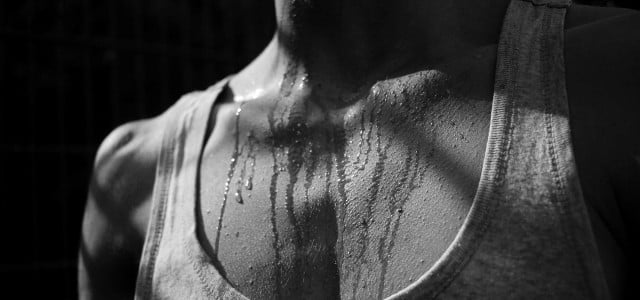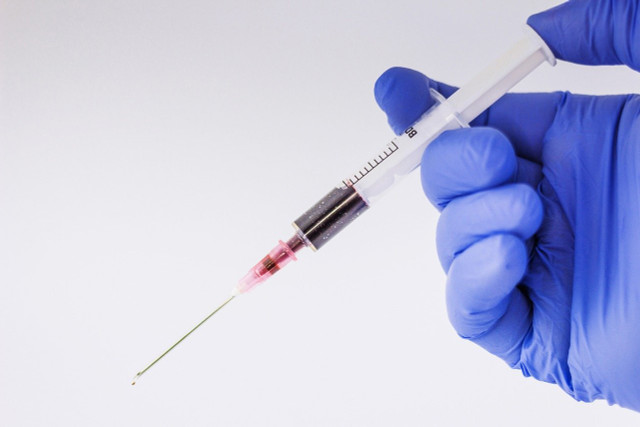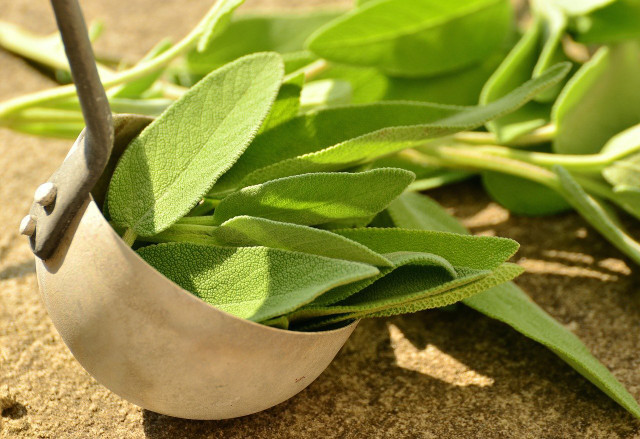
Heavy sweating on the head can be a problem, especially in the warmer months. We will show you which medical and home remedies help with head sweating.
For many sufferers, excessive sweating on the head is a major stress factor. After every little exertion, your scalp, hair and face are soaking wet. You have to wash your hair particularly often and you don’t like wearing caps and hats – even in the cold winter.
We explain the causes of excessive head sweating and give you tips on how to reduce it.
Reasons for excessive sweating on the head

(Photo: CC0 / Pixabay / wal_172619)
Many people who often sweat heavily on their heads suffer from what is known as “hyperhidrosis”. This is when your body produces more sweat on your head than is necessary to regulate your temperature. A distinction is made between primary and secondary hyperhidrosis. Secondary hyperhidrosis can be a symptom of a deeper disease. Possible causes of secondary hyperhidrosis are:
- Hormonal imbalance (PCOS, endometriosis, Hashimoto thyroiditis, diabetes, menopause, etc.)
- a neurological disease
- a mental disorder (e.g. anxiety or panic disorder)
It is best to discuss your chronic sweating problems with your doctor. For most of the diseases listed, there are treatment methods that not only reduce the amount of sweat you produce on your head, but can also make your life a lot easier in general. If you often suffer from heavy sweating on your head, even when you are not exerting yourself and the temperature is not high, seek medical advice.
Primary hyperhidrosis is not caused by any of the problems listed. Sweat production is increased for no apparent reason. Since there are a large number of sweat glands on the head and face, you may notice more outbreaks of sweating in these areas.
Possible harmless causes of excessive sweating on the head:
- stressful situations
- certain foods and spices
- heat
-
Sports and other physical exertion
- various medications (e.g. various psychotropic drugs and painkillers)
Controversial remedy for excessive sweating on the head: Botox

(Photo: CC0 / Pixabay / frolicsomepl)
If you suffer from primary hyperhidrosis, your head sweat is not caused by an illness. In this case, there is currently only one medical option to completely stop excessive sweating on the head: treatment with the neurotoxin Botox (botulinum toxin).
This treatment from the USA is also known as “Blowtox”, a combination of blowout (blow-dry hairstyle) and Botox. Because less head sweat saves many women from having to constantly wash and style their hair. A treatment lasts up to a year by blocking the communication between your nerves and sweat production. Since your scalp is a relatively large surface area, you would have to pay around 1,500 euros for a treatment and endure between 150 and 200 injections.
Is Botox safe?
Botox is the most powerful neurotoxin in the world. Possible side effects include swelling, bruising, drooping eyelids and limited facial expressions – but these side effects rarely occur. An overdose is particularly dangerous because it can lead to difficulty swallowing, dry mouth, headaches and nausea. However, the poison is greatly diluted for use on humans.
However, Botox does not work without animal cruelty. Before it can be used on humans, the dosage must first be tested on animals. Researchers are testing Botox on mice, which, according to PETA, suffer days of agony before suffocating to death while fully conscious. For this reason and because of the potential side effects (and costs), you should use gentler home remedies for excessive head sweating instead of Botox.
Heavy sweating on the head: natural home remedies

(Photo: CC0 / Pixabay / congerdesign)
Various lifestyle changes and home remedies can help reduce excessive head sweating.
Scalp and hair care:
-
Apple cider vinegar regulates the pH value of your skin and fights bacteria. Mix a few teaspoons of vinegar with warm water and massage the mixture into your scalp. Leave it on for half an hour and then wash it off. (Tip: make your own apple cider vinegar.)
-
Sage has a sweat-inhibiting effect, which is why sage tea and sage drops can also help against excessive sweating on the head. Either wash your hair with a sage infusion (it is best to use fresh sage and pour hot water over it for 15 minutes) or add a few drops of sage oil to your shampoo (available from Avocadostore, among others).
- Avoid dry shampoo or home remedies like baking soda. While these can temporarily reduce sweat, they can dry out your scalp, cause breakouts, hair breakage, and even inflammation.
Clothing:
- If you wear a cap, you should clean your caps and hats regularly to prevent bacteria from settling in them. These can increase sweat and the smell of sweat.
- Wear fabrics that are moisture-repellent and breathable, such as real leather in winter (preferably secondhand), sustainable wool or hats with mesh layers.
Nutrition:
- Avoid spicy foods and garlic.
- Also avoid caffeine, alcohol and nicotine.
- Eat a balanced diet to prevent obesity.
- Drink plenty of water that is not too cold (around 16 degrees Celsius). It will help you sweat less and hydrate you if you have been sweating excessively.
- Sage tea can help reduce sweat not only externally but also from the inside out.
Other home remedies for sweating on the head:
- Even if you suffer from primary hyperhidrosis, stressful situations can increase your sweat production. So try to reduce stress. You can do this with meditation or mindfulness exercises, for example. In this article, we’ll show you how to learn to overcome fear: These strategies will help.
- Always carry an absorbent, washable towel with you to wipe off excessive sweat from your head. This is especially important in winter, as wet sweat is cooling and can make you more likely to catch a cold.
- Make good sleep a priority. Poor sleep can disrupt your hormone levels, which may lead to more sweating. Read more here: Sleep disorders: tips for a more restful sleep.
Read more on Techzle\.com:
- Remove sweat smell from clothes: this is how it works with household remedies
- Sweaty feet: The best tips and home remedies
- Night sweats: causes and treatment of night sweats
Edited by Paula Boslau
** marked with ** or orange underlined Links to sources are partly affiliate links: If you buy here, you are actively supporting Techzle\.com, because we then receive a small part of the sales proceeds. .